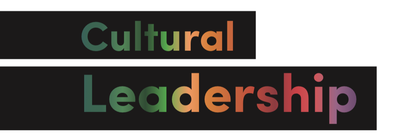posted on
Arts Management Quarterly | focus on Arts Managers in Foreign Regions

Edition No. 133 of Arts Management Quarterly is dedicated to Arts Managers in Foreign Regions.
As the editorial states:
This issue aims to explore the potentials, such as personal development and the broadening of individual horizons and perceptions, that arise when arts and cultural managers work in a region for a longer time that in many aspects is different from their previous living context. But it also shows the difficulties that may occur under such circumstances, even with the best of intentions, anticipation and the will to create. When we began working on this issue, international cooperation and stays abroad in the arts and cultural sector were flourishing. At the same time, the difficulties of such forms of international and intercultural exchange became increasingly clear and were also discussed more intensively: Power hierarchies and the dominance of primarily Western regions and cultural management approaches, verbal and non-verbal communication difficulties, unequal financial conditions, and so on. Now, due to COVID-19 the cultural sector has been at a standstill for about two months in most countries of the world. And even though much will change, we hope that this will not diminish the important role of arts and culture for intercultural encounters and that, thanks to digital communication, cooperation across national and cultural borders will continue to exist. In the meantime, we hope that this issue will contribute to a deeper reflection and that it will positively change the efforts regarding internationalization in the arts and cultural sector.
Working in a foreign cultural context can open up a lot of potentials and new perspectives for arts managers. But it can also entail difficulties. Therefore, this issue reflects on internationalization in the cultural sector from the point of view of arts and cultural managers from different regions of the world and fields of practice report on their personal experiences made while spending a longer time in completely different cultural contexts.
When intercultural exchange is concerned, the focus is usually on positive, horizontally expanding experiences. However, difficult aspects must also be included and are increasingly being addressed in the cultural sector, such as unequal power hierarchies and the dominance of certain regions and approaches, or different, sometimes underlying perceptions on specific aspects of daily work. And since arts and cultural managers cannot travel at the moment, now might be the time to reflect on and learn from former experiences, also for future digital forms of collaboration.
FOCUS - Arts Managers in Foreign Contexts
- Reflections on cultural mobility through a postcolonial lens. From the (so-called) South to North, by Suelen Silva, page 17
- A Pre-digital Migrant. A German arts manager in Asia and the Near East, by Gabriele Landwehr, page 25
- Reflections from an African experience. From Buenos Aires to Diogo Vaz, by Federico Escribal, page 36
- Flexibility is a must. Working in the Creative and Cultural Industries in Russia, by Nicole McNeilly, page 42
- Co-creation of critical, cross-cultural, creative collaborations. The un-learning and meta-learning from transnational experiences, by Sudebi Thakurata, page 48
Similar content
posted on
posted on
posted on
posted on
posted on
posted on




